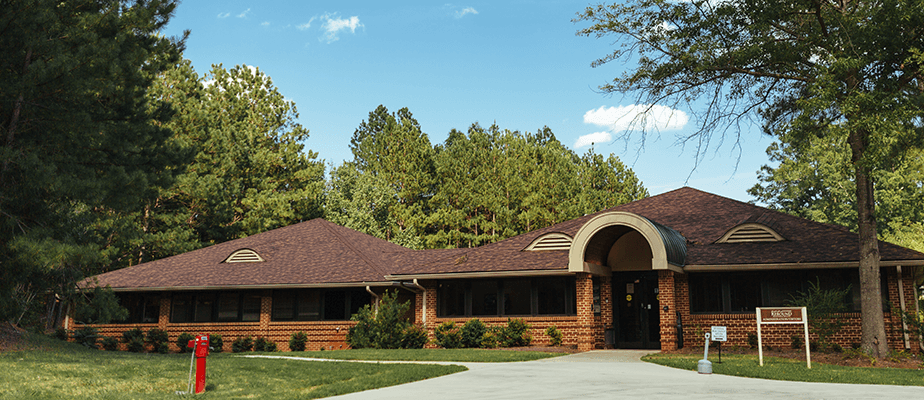Schizophrenia is a chronic disorder of the brain that makes it tremendously challenging for people to distinguish what is real and what is not. People who have schizophrenia have a variety of problems in thinking clearly, managing emotions, relating to other people, and functioning normally in society.
More About Schizophrenia
Learn more about schizophrenia
While often considered a tremendously debilitating disorder, it can be successfully managed through careful attention to medications and therapies. The most common symptoms of schizophrenia fall into three distinct categories: positive symptoms, negative symptoms, and cognitive symptoms.
Positive symptoms are psychotic behaviors not noted in those without schizophrenia, and occur when people who have this illness lose touch with reality. Positive symptoms come and go, and range in severity and presentation.
Negative symptoms of schizophrenia are associated with disturbances in emotions and behaviors. Negative symptoms can be harder to distinguish and recognize as a part of schizophrenia, and are often misdiagnosed as other mental health disorders. When a person who has schizophrenia is experiencing negative symptoms, he or she will need help with everyday tasks of daily living, often neglecting things like personal hygiene.
Cognitive symptoms are often subtle, but make it very hard for a person with schizophrenia to lead a normal life and perform well at work, leading to major emotional distress. It can be hard to identify cognitive symptoms as a part of the disorder, and they may only be noted when other tests are performed.
While the symptoms of schizophrenia can be debilitating, with the right treatments, support, and medications, a person who has schizophrenia can lead a happy, productive, and fulfilling life.
Statistics
Statistics on schizophrenia
About 1% of people living in the United States have schizophrenia. This disorder affects men and women of all ethnicities around the world at similar rates. Symptoms of this disorder tend to begin between ages 16 and 30.
What Causes Schizophrenia?
Learn about the causes of and risk factors for schizophrenia
Schizophrenia is not thought to be the result of a single cause or risk factor. Rather, it’s considered to be a combination of things working together that results in the development of this disorder. The most common causes of schizophrenia may include:
Genetic: People who have first-degree relatives who have schizophrenia are at greater risk for developing the disorder themselves. Schizophrenia occurs in about 1% of the general population, but occurs in 10% of people who have a first-degree relative with the disorder. However, it’s important to note that many cases of schizophrenia occur without any family history of the disorder.
Physical: Researchers believe that an imbalance in the neurotransmitters dopamine and glutamate play a role in the development of schizophrenia. Additionally, imaging studies such as MRIs and CT scans of those who have schizophrenia have shown there to be a difference in the structure and function of the brain. The ventricles, or fluid-filled cavities at the center of the brain, are larger in some people who have schizophrenia. In addition, the brains of people who have this disorder tend to have less grey matter.
Environmental: Research suggests that exposure to major stress may trigger schizophrenia. Other causes for schizophrenia may include prenatal exposure to a virus, premature birth, low oxygen levels during birth, and poor maternal health during pregnancy.
Risk Factors:
- Early parental loss
- Parental divorce during early childhood
- Physical or sexual abuse during childhood
Signs of Schizophrenia
Signs and symptoms of schizophrenia
The symptoms of schizophrenia vary from person to person based upon genetic makeup, presence of co-occurring disorders, and usage of drugs or alcohol. The most common symptoms of schizophrenia fall into three main categories: positive symptoms, negative symptoms, and cognitive symptoms.
Symptoms of schizophrenia include:
Positive symptoms:
- Hallucinations are things a person hears, sees, smells, or feels that no one else experiences. Voices are the most common hallucination for schizophrenics, and they may talk to the person about his or her behavior, order the person to do things, or warn the person of danger.
- Delusions are false, fixed beliefs that are not part of a person’s culture and do not change even in the face of evidence that proves otherwise.
- Thought disorders are unusual or dysfunctional ways of thinking, such as “disorganized thinking,” which happens when a person has trouble organizing and collecting his or her thoughts in a logical manner.
- Movement disorders often appear as agitated, repetitive movements, or catatonia, a state in which a person doesn’t move or respond to others.
Negative symptoms:
- Flat affect – a person’s face doesn’t move when he or she speaks, or he or she speaks in a flat, monotonous voice
- Anhedonia – inability to feel pleasure in everyday life
- Lack of ability to begin and sustain planned events
- Speaking little, even when a person is forced to communicate
Cognitive symptoms:
- Trouble focusing or paying attention
- Trouble with working memory, or the ability to use information immediately upon learning it
- Poor executive functioning, or the ability to understand information and use it to make decisions
Effects of Schizophrenia
The effects of schizophrenia
Treatment for schizophrenia involves a life-long commitment to therapy and medications. If left untreated, the effects of schizophrenia can impact nearly every aspect of a person’s life. The most common effects of schizophrenia include:
- Inability to care for oneself
- Joblessness
- Homelessness
- Addiction to drugs or alcohol
- Social isolation
- Relationship problems
- Self-harming behaviors
- Suicidal thoughts and behaviors
Co-Occurring Disorders
Schizophrenia and co-occurring disorders
Schizophrenia is often accompanied by other mental health disorders. The most common co-occurring disorders include:
- Substance use and abuse
- Alcoholism
- Anxiety disorders
- Obsessive-compulsive disorder
- Panic disorder
- Schizotypal personality disorder
- Paranoid personality disorder

















